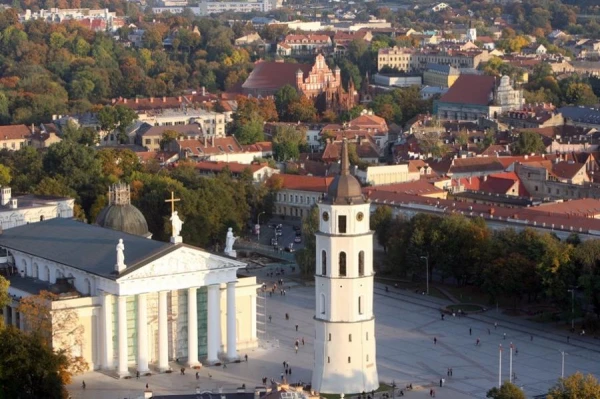
Salary, personal life, geography... For people living alone, the road to acquiring their own housing is strewn with many obstacles. How are Europeans addressing this issue?
Property prices are rising again across the European Union. Many young people who are not married face financial barriers on their way to acquiring their own housing.
According to Eurostat data, after a brief decline in 2023, property prices rose again in 2024, increasing by 5.4% in the second quarter of 2025.
One social consequence is that Europeans who are not in relationships increasingly feel detached from the housing market.
In particular, 37% of single Europeans now believe they will never be able to buy a house or apartment.
This is one of the key findings of a new survey involving more than 20,000 people across 23 countries. The study was conducted by the real estate company RE/MAX, with results exclusively provided to Europe in Motion.
Entering a Relationship to Buy Property?
According to 26% of respondents planning to purchase property, forming a couple is becoming a practical way to quickly acquire housing — this is the third most frequently mentioned option.
This figure is highest in the Netherlands and Portugal (33%), and especially among Generation Z across Europe (35%), who seem to be slightly less individualistic or perhaps more pragmatic than their older millennial siblings (25%).
This may also explain why Generation Z couples are moving in together faster than any other generation: on average after 2.7 years compared to 3.2 years among millennials.
British lovers move in together the fastest — just two years and four months, which is the shortest time in Europe. France is at the opposite end of the spectrum: on average, it takes more than four years — the longest time on the continent, followed by Italy.
What Other Solutions Are There for Buying Property?
Overall, many couples seem to be quickly transitioning to cohabitation: 13% of European couples start living together within just six months, while 26% do so within a year.
"Housing affordability determines not only where people live but also with whom they live," says Michael Polzler, CEO of RE/MAX Europe. "The rise in housing prices continues to affect everyone, but those without a partner or joint income find it the hardest to become homeowners."
Some are paying attention to geography: 14% of respondents claim that moving to a cheaper area could be their path to property acquisition. This strategy is most common in Germany (20%) and Turkey (23%).
However, the main obstacle to achieving the coveted status of property owner is salary. This is the view of 58% of respondents overall. In Poland, this figure is 66%, and in Hungary, it is 67%.
Generation Z, often working in entry-level or junior positions, faces this issue more than others when making significant transactions. This was indicated by 62% of respondents. However, there is a surprise: the issue of salary is mentioned slightly more often by baby boomers (57%) and Generation X (56%) than by millennials (55%).
Where in Europe Is It More Expensive to Live Alone
Single people own much less property than those who are married. While among married individuals, 72% own the housing they live in, among those living alone, this figure drops to 49%.
However, the gap between countries is even more striking.
The homeownership rate among single individuals is significantly lower in Switzerland (17%), Germany (19%), and Malta (15%).
It is estimated that housing costs for single Europeans average 36% of their income, including utilities. In Germany, this figure is one of the highest — nearly 42% of the income of single individuals — while in neighboring Czechia, it exceeds 45%.
In Italy, France, and Spain, this burden is somewhat lighter: in all three countries, it does not exceed 33%, while in the UK, it corresponds to the average European level — 36%.
According to the survey, the most comfortable place to live alone in Europe is Lithuania, where less than a quarter of the salary goes to housing.
Latest news from the housing market: where are prices rising the most?
In 2025, housing prices began to rise again in most EU countries.
With the exception of Finland (-1.3%), all member states reported price increases in the second quarter.
The sharpest increases were recorded in Portugal (+17.2%), Bulgaria (+15.5%), and Hungary (+15.1%).
In 2023, average housing prices in the EU fell sharply (-6.4%). This occurred after the European Central Bank decided to raise interest rates several times to combat rising inflation. This, in turn, led to an increase in mortgage rates and a subsequent decline in consumer demand. In 2024, housing prices rose by only 0.6%.















Leave a comment